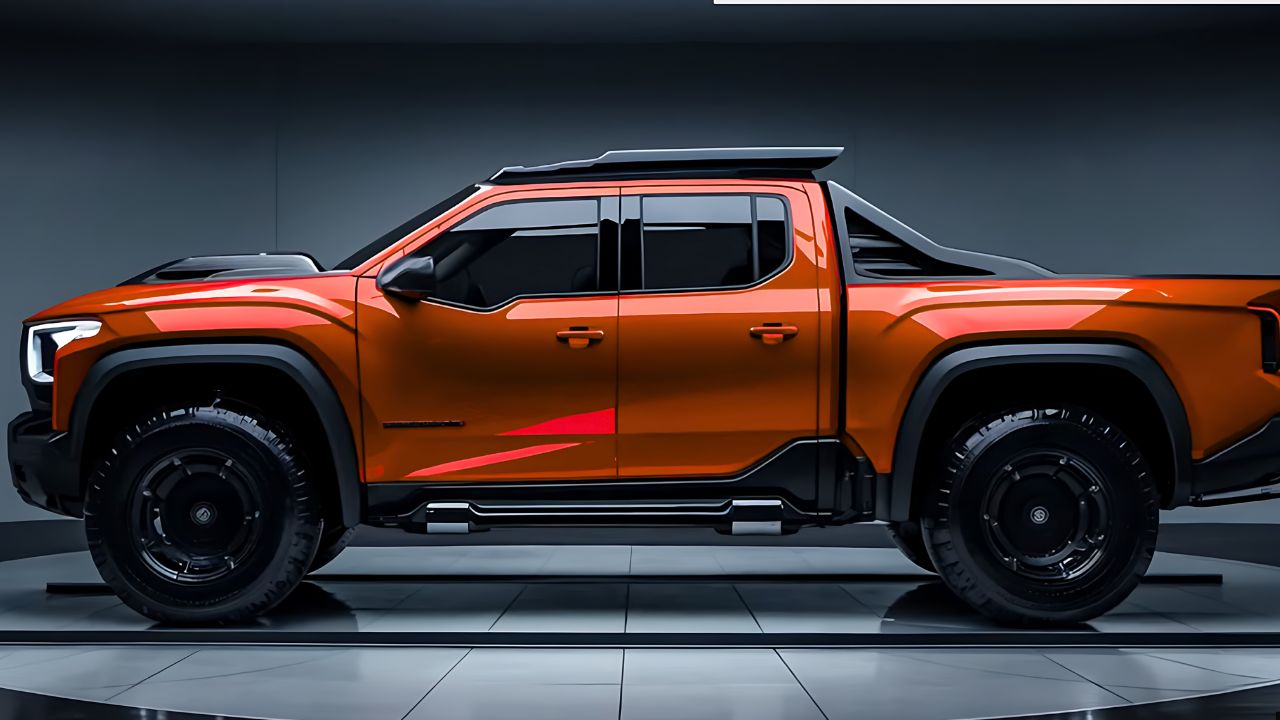The Future of Farming: Exploring the Potential of a John Deere Pickup Truck
The Future of Farming: Exploring the Potential of a John Deere Pickup Truck
Introduction
With great pleasure, we will explore the intriguing topic related to The Future of Farming: Exploring the Potential of a John Deere Pickup Truck. Let’s weave interesting information and offer fresh perspectives to the readers.
Table of Content
The Future of Farming: Exploring the Potential of a John Deere Pickup Truck

The name John Deere is synonymous with agricultural innovation. From its iconic green tractors to cutting-edge precision farming technology, the company has consistently pushed the boundaries of what’s possible in the world of agriculture. While John Deere currently focuses on farm machinery, there’s growing speculation about the possibility of a John Deere pickup truck entering the market.
While this concept remains hypothetical, exploring its potential benefits and challenges offers valuable insights into the future of farming and the evolving landscape of the automotive industry.
The Appeal of a John Deere Pickup Truck:
A John Deere pickup truck, if realized, could cater to the specific needs of farmers and ranchers, offering a blend of ruggedness, functionality, and technological integration. Here are some potential advantages:
- Enhanced Workhorse Capabilities: Farmers often need vehicles that can handle heavy loads, traverse rough terrain, and tow trailers with ease. A John Deere pickup truck, designed with agricultural applications in mind, could boast superior towing capacity, ground clearance, and payload capabilities, surpassing the limitations of traditional pickup trucks.
-
Integration with Existing Farm Equipment: John Deere’s expertise in precision farming technology could be seamlessly integrated into a pickup truck. This could involve features like:
- Automatic Guidance Systems: Similar to John Deere tractors, the pickup truck could be equipped with advanced guidance systems, allowing for precise maneuvering and optimized efficiency in fieldwork.
- Data Collection and Analysis: Sensors and data-logging capabilities could provide real-time insights into vehicle performance, fuel consumption, and even soil conditions, enabling farmers to make informed decisions about their operations.
- Remote Monitoring and Control: Farmers could remotely monitor vehicle status, track location, and even adjust settings from their smartphones or tablets, increasing convenience and control.
-
Improved Safety and Comfort: John Deere could prioritize driver safety and comfort by incorporating advanced features such as:
- Driver Assist Systems: Advanced driver-assistance systems (ADAS) like lane departure warning, automatic emergency braking, and blind spot monitoring could enhance safety on the road.
- Ergonomic Design: The cabin could be designed with comfort and functionality in mind, catering to the specific needs of farmers who spend long hours working in their vehicles.
-
Sustainability and Efficiency: John Deere’s commitment to sustainability could be reflected in the pickup truck’s design. Features like:
- Fuel-Efficient Engines: Advanced engine technology could offer improved fuel economy, reducing operating costs and minimizing environmental impact.
- Alternative Powertrains: The company could explore hybrid or electric powertrains, further reducing emissions and enhancing fuel efficiency.
- Brand Recognition and Trust: John Deere enjoys a strong brand reputation for quality and reliability. A John Deere pickup truck would inherit this trust, appealing to farmers who value durability, performance, and a trusted brand name.
Challenges and Considerations:
While the concept of a John Deere pickup truck holds promise, several challenges need to be addressed:
- Market Competition: The pickup truck market is fiercely competitive, dominated by established players like Ford, Chevrolet, and Ram. Entering this market would require significant investment and a compelling value proposition to differentiate John Deere from existing offerings.
- Manufacturing and Distribution: John Deere would need to establish manufacturing facilities and distribution networks to reach a large customer base. This could involve collaborations with existing automotive manufacturers or the development of new infrastructure.
- Pricing and Affordability: The price point of a John Deere pickup truck would be crucial. It needs to be competitive with existing offerings while also reflecting the value proposition of its unique features and capabilities.
- Customer Expectations: Farmers have specific needs and expectations from their vehicles. John Deere would need to carefully consider these expectations and ensure that the pickup truck meets the demands of its target audience.
FAQs about a Potential John Deere Pickup Truck:
- Will a John Deere pickup truck be available in 2025? There is currently no official announcement from John Deere about a pickup truck entering the market. The timeline for such a venture remains uncertain.
- What type of features could a John Deere pickup truck offer? A John Deere pickup truck could incorporate advanced features like automatic guidance systems, data collection and analysis, remote monitoring, driver assist systems, and fuel-efficient engines.
- Would a John Deere pickup truck be suitable for everyday use? While designed with agricultural applications in mind, a John Deere pickup truck could potentially offer features and capabilities that make it suitable for everyday driving.
- What is the potential impact of a John Deere pickup truck on the automotive industry? The introduction of a John Deere pickup truck could disrupt the existing market dynamics, introducing a new player with a unique value proposition and potentially influencing the development of future pickup trucks.
Tips for Farmers Considering a John Deere Pickup Truck:
- Stay Informed: Follow industry news and developments to stay updated on any potential announcements or progress regarding a John Deere pickup truck.
- Research Existing Options: Explore the current pickup truck market and assess the capabilities and features offered by existing models.
- Consider Your Needs: Carefully evaluate your specific requirements and prioritize the features that are most important for your agricultural operations.
- Consult with Industry Experts: Seek advice from other farmers or agricultural professionals who might have insights into the potential benefits and challenges of a John Deere pickup truck.
Conclusion:
The potential for a John Deere pickup truck represents an intriguing prospect for the future of farming. By leveraging its expertise in agricultural technology and brand recognition, John Deere could create a vehicle that caters to the specific needs of farmers and ranchers. While challenges remain, the potential benefits of a John Deere pickup truck, from enhanced workhorse capabilities to improved safety and sustainability, make it a concept worth watching. The evolution of this idea could significantly impact the automotive industry and redefine the relationship between technology and agriculture.








Closure
Thus, we hope this article has provided valuable insights into The Future of Farming: Exploring the Potential of a John Deere Pickup Truck. We hope you find this article informative and beneficial. See you in our next article!